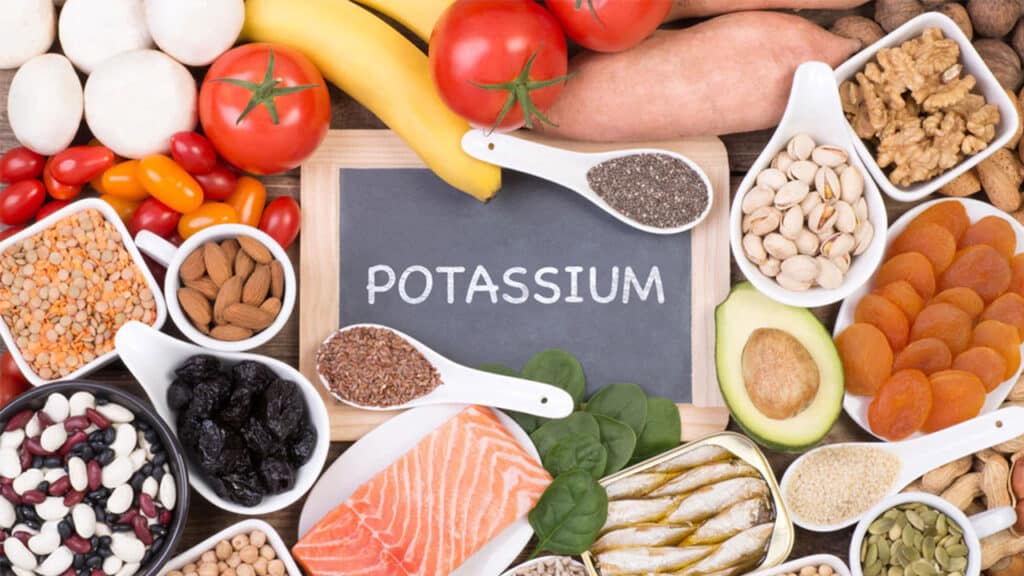Potassium isn’t as famous as iron or calcium, but that doesn’t make its role as a dietary mineral any less important. You can’t survive if you don’t have enough potassium, which you generally find by eating potassium-rich foods.
Those foods include, as with most vitamins and minerals, lots of fruit and vegetables, particularly apricots (especially when dried), bananas and avocados. Dried fruit is a good option in general. You can find potassium in potatoes, although the amount depends upon how they’re cooked. Tomatoes have plenty of potassium. Then there are nuts, soybeans and other legumes. You can also get potassium from drinks, including milk, tea and coffee.
Why’s it so important to consume enough potassium? Well, you can find potassium in every cell of the body. It regulates fluid and electrolyte levels; affects the nerves, kidneys, heart and muscles; and has a complicated relationship with sodium that can influence your blood pressure as well as your fluid volume.
Deficiencies in your potassium intake can contribute to high blood pressure and cause something called hypokalemia. In its mildest forms, hypokalemia doesn’t have any symptoms. Slightly more serious cases may cause tiredness, weakness, cramps and constipation. Sometimes it can cause an irregular heartbeat.
Low potassium isn’t just caused by an inadequate diet. It can also be a side effect of major fluid loss, like diarrhea or excess sweating. Sometimes it can occur after certain surgical procedures. There’s medication that can reduce your potassium levels, or it may be related to a lack of magnesium (another essential mineral), which processes potassium.
However, you don’t want too much potassium in your body. An excess of potassium is known as hyperkalemia and it actually has similar symptoms to hypokalemia, including muscle weakness and an abnormal heart rhythm. You may experience palpitations. Hyperkalemia can be caused by kidney failure, and people with kidney problems may have to be extra careful about the amount of potassium in their diet.
In general, the advice for potassium is the same as for other minerals, or indeed nutrients more generally. Eat a balanced diet and you should be able to obtain all you need; if not, you may need supplements, but don’t overdo it because that can cause a different set of problems. Just don’t dismiss potassium’s importance to your body as a whole because it’s not as well-known as some of the other minerals.




